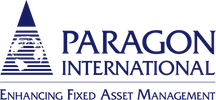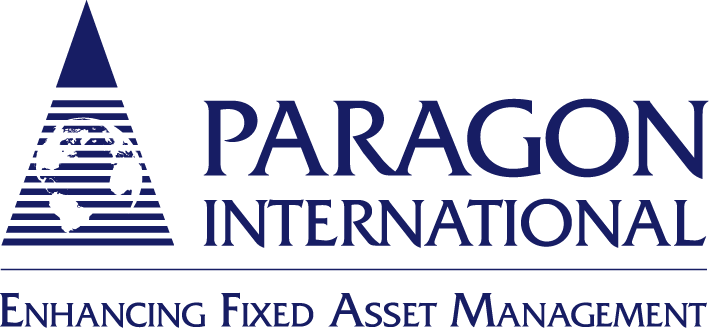Read About Cost Segregation for New Construction BEFORE Moving Forward with Your Project
When your business is planning new construction, you have a lot of details to track. The process see-saws from grindingly slow to exhaustingly fast, which makes it likely you will overlook the extremely critical early step of Tax Engineering. This is an essential part of cost segregation for new construction.
Business leaders know that the Tax Engineering process can deliver massive tax benefits, but they may not know the ideal time to start the process. Learn the best timing for Tax Engineering and other key tips for success here.
First: What Is Tax Engineering?
Tax Engineering is a form of cost segregation that focuses on making early choices related to real property vs. personal property in your new construction. This empowers you to maximize your tax benefits without sacrificing your design integrity.
In the Tax Engineering process, a multidisciplinary team comprised of depreciation experts and engineers work together to create an actionable strategy that you and your architect can execute to reduce five associated types of taxes. To reduce these taxes, you will be reallocating many of your property’s assets.
Through planned design and engineering choices, you will be able to transform real property — with its mandated 39-year straight-line depreciation for a commercial building — into personal property, which allows for a more flexible accelerated depreciation schedule of 5 or 7 years based on asset function and classification.
By executing on your pre-planned Tax Engineering strategy, your business can proactively improve cash flow on the project while saving thousands or millions in income taxes, property taxes, and sales taxes over the decades to come.
The 3 Tips to Help You Succeed with Cost Segregation for New Construction
Tax Engineering is a great fit when you are looking to execute effective cost segregation for new construction, but you will want to make sure you keep a few tips in mind as you start on your new project.
- Get Started Early
The ideal time for you to work with a Tax Engineering expert is at the beginning of your new construction project. This is because your tax savings are significantly impacted by your design choices – literally how you attach or design an asset into your structure can affect your tax savings over the next 39 years.
By working with Tax Engineering experts early on in your construction project, your architect can “create” qualifying assets for faster depreciation while maintaining your design aspirations.
- Work with Depreciation Experts
Cost segregation for new construction is a commonly accepted practice supported by the IRS. However, considering the significant tax savings this process results in, the IRS often checks to make sure that all the rules are being followed properly.
Because the tax and depreciation laws change constantly, you will want to make sure you work with highly experienced depreciation experts who can help you ensure that you are doing your best to align with the latest IRS standards and expectations.
Depreciation experts have the uncanny ability to find additional tax savings, typically around 8-15% more than you expected, because they are trained to understand the “why” behind asset lifecycles and how the IRS thinks about various assets. These experts are uniquely qualified to help you identify often overlooked building and land improvements, such as landscaping and hardscaping, that you can reasonably allocate as personal property or land improvements for accelerated depreciation.
- Ensure Engineers Are Involved
Though it results in massive tax savings and a significant improvement in your cash flow, you must remember that Tax Engineering is not simply an accounting task. In fact, many of the design choices that go into a careful Tax Engineering study rely directly on engineering expertise.
When you combine the efforts of a depreciation team with an engineering team, you can ensure that the internal components of your building are also appropriately segregated into personal vs. real property, including the structural, mechanical, electrical, plumbing, and communication systems that directly support your business as opposed to the building itself.
One example of this could be segregating a portion of a specialized HVAC system meant to handle the increased heat load of a commercial kitchen or server room.
Use this calculator to estimate your tax savings.
How to Get More from the Tax Engineering Process
Curious how much you would save with cost segregation for new construction? Make sure you can maximize your deductions by working with Paragon’s Cost Segregation Engineers. The Paragon team specializes in analyzing complex mechanical and electrical systems as well as complex tax depreciation rules to help you identify far more property eligible for accelerated depreciation than accounting-based-only approaches typically do.
Find out if Tax Engineering is Right for You
About Us
Serving clients since 1985, Paragon International, Inc. provides independent, impartial and accurate cost segregation analyses, and property valuations and appraisals to assist in and support decisions related to taxes, risk management, investment, financing and corporate planning. Our consultants have extensive fixed asset experience – they’re fixed asset experts. Because of that we are able to offer a unique combination of irreplaceable human resources and advanced technology. We have specialists experienced in valuing closely-held securities, patents and other intangible assets, business enterprises, buildings, equipment and real estate. In addition, Paragon provides complete inventory and asset management services and solutions, including software customization and training, barcode labels and scanners, and tailored inventory services such as data conversion and integration, asset inventories, asset policies, cost reconciliation, and appraisal services. Contact Paragon International to discover how we can help you.
IRS Circular 230 Disclosure: Paragon International, Inc. and its divisions do not provide tax advice. Accordingly, any discussion of U.S. tax matters contained herein (including any attachments) is not intended or written to be used, and cannot be used, for the purpose of avoiding U.S. tax-related penalties.




